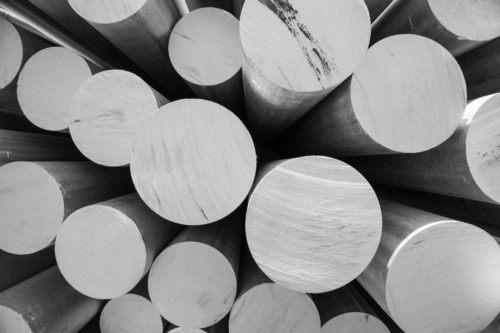A Biased View of Alcast Company
A Biased View of Alcast Company
Blog Article
Top Guidelines Of Alcast Company
Table of ContentsThe Best Guide To Alcast CompanyAlcast Company - The FactsThe Best Guide To Alcast CompanySome Known Facts About Alcast Company.The 4-Minute Rule for Alcast Company8 Easy Facts About Alcast Company Shown
The refined difference hinges on the chemical material. Chemical Contrast of Cast Aluminum Alloys Silicon promotes castability by lowering the alloy's melting temperature and enhancing fluidness throughout spreading. It plays a crucial role in allowing elaborate molds to be filled up properly. Additionally, silicon adds to the alloy's strength and wear resistance, making it valuable in applications where durability is important, such as automotive parts and engine elements.It also boosts the machinability of the alloy, making it easier to refine right into completed products. By doing this, iron adds to the general workability of light weight aluminum alloys. Copper enhances electric conductivity, making it helpful in electric applications. It additionally boosts deterioration resistance and includes to the alloy's total toughness.
Manganese adds to the toughness of light weight aluminum alloys and improves workability. Magnesium is a light-weight aspect that gives stamina and effect resistance to light weight aluminum alloys.
Some Ideas on Alcast Company You Should Know
It allows the production of lightweight components with excellent mechanical properties. Zinc boosts the castability of aluminum alloys and helps manage the solidification process throughout spreading. It improves the alloy's strength and firmness. It is frequently located in applications where detailed shapes and fine details are essential, such as decorative spreadings and certain automobile parts.
The primary thermal conductivity, tensile stamina, return toughness, and prolongation differ. Select suitable resources according to the performance of the target product generated. Amongst the above alloys, A356 has the highest possible thermal conductivity, and A380 and ADC12 have the most affordable. The tensile restriction is the contrary. A360 has the very best return strength and the highest elongation rate.
The Buzz on Alcast Company

In precision spreading, 6063 is well-suited for applications where complex geometries and top notch surface coatings are critical. Instances include telecommunication rooms, where the alloy's premium formability permits sleek and cosmetically pleasing layouts while maintaining structural honesty. In the Lighting Solutions sector, precision-cast 6063 components develop elegant and effective lights fixtures that call for elaborate forms and great thermal performance.
The A360 shows superior prolongation, making it perfect for complicated and thin-walled elements. In precision casting applications, A360 is well-suited for markets such as Customer Electronic Devices, Telecommunication, and Power Tools.
Top Guidelines Of Alcast Company
Its unique homes make A360 a beneficial option for accuracy casting in these markets, enhancing item toughness and quality. aluminum metal casting. Aluminum alloy 380, or A380, is a commonly made use of casting alloy with several distinct qualities.
In accuracy spreading, aluminum 413 shines in the Customer Electronics and Power Tools sectors. This alloy's remarkable rust resistance makes it an outstanding learn the facts here now choice for exterior applications, making sure lasting, durable items in the discussed sectors.
The smart Trick of Alcast Company That Nobody is Discussing
The light weight aluminum alloy you pick will substantially influence both the casting procedure and the properties of the final item. Since of this, you must make your choice very carefully and take an educated technique.
Figuring out the most ideal light weight aluminum alloy for your application will imply weighing a vast range of qualities. The first category addresses alloy features that impact the manufacturing procedure.
What Does Alcast Company Do?
The alloy you pick for die casting directly impacts several elements of the spreading process, like just how easy the alloy is to collaborate with and if it is prone to casting flaws. Warm splitting, also called solidification cracking, is a normal die spreading problem for aluminum alloys that can lead to inner or surface-level tears or splits.
Specific light weight aluminum alloys are much more prone to warm cracking than others, and your choice needs to consider this. It can damage both the actors and the die, so you must look for alloys with high anti-soldering homes.
Corrosion resistance, which is currently a remarkable characteristic of light weight aluminum, can differ significantly from alloy to alloy and is an important particular to consider depending upon the environmental conditions your product will be subjected to (Foundry). Wear resistance is another building generally looked for in light weight aluminum items and can set apart some alloys
Report this page